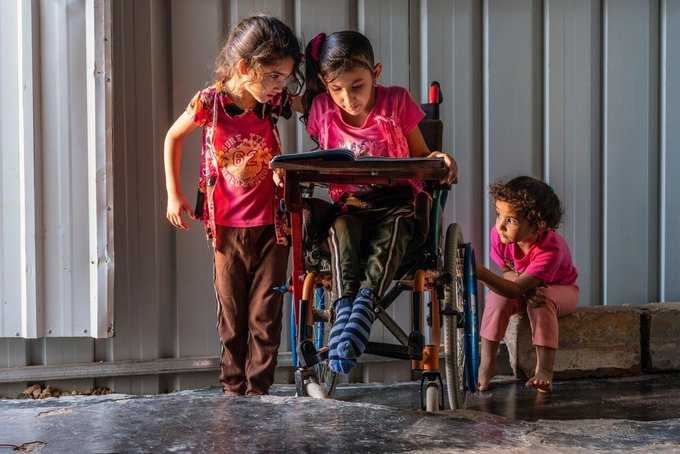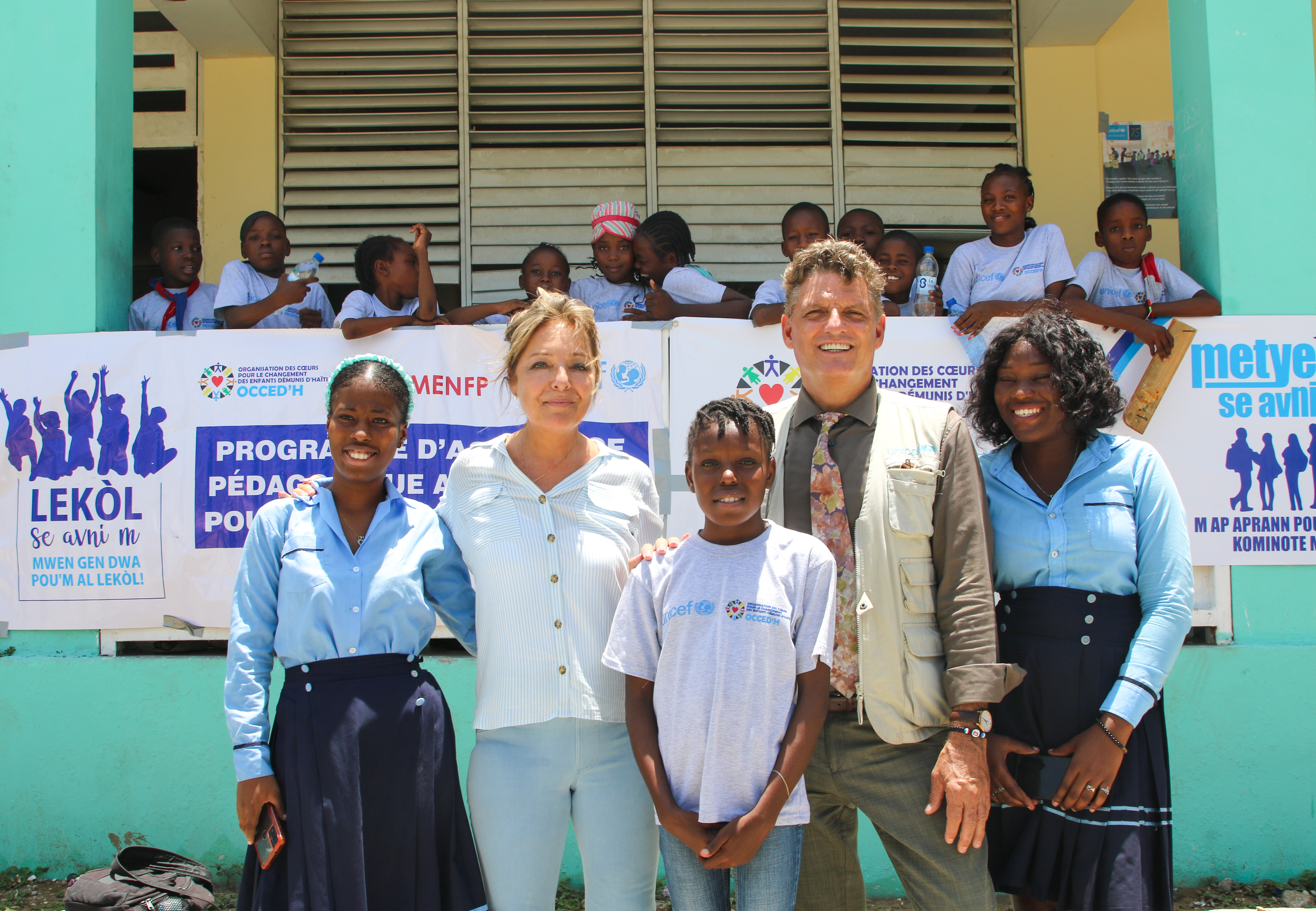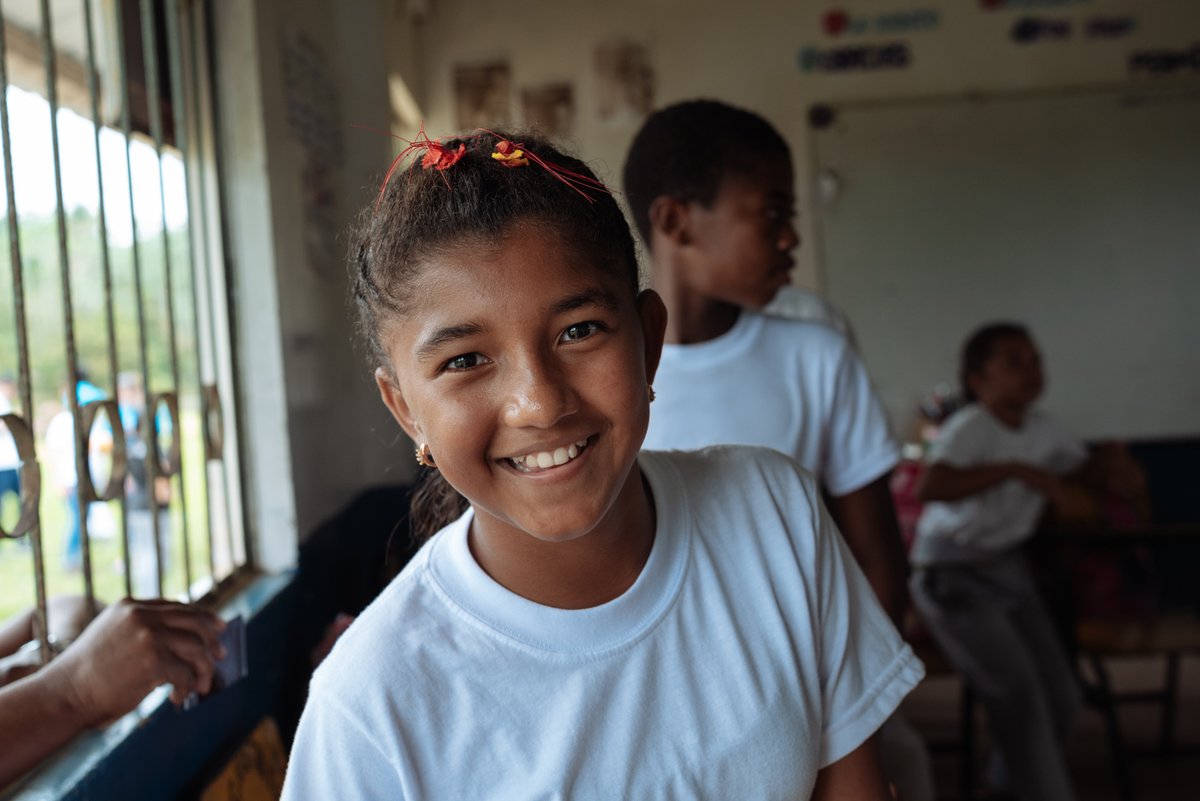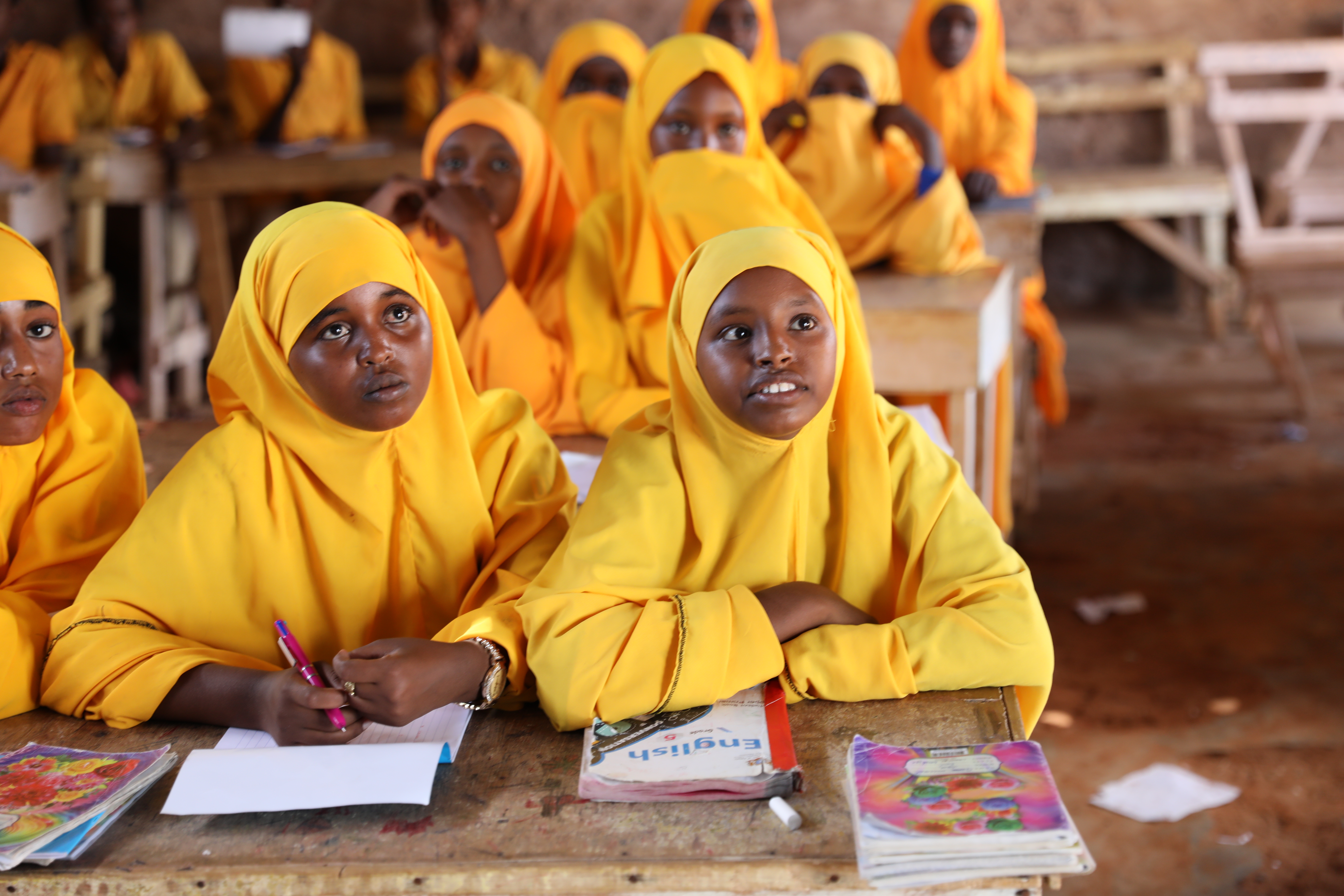Education Cannot Wait Announces New US$1.2 Million Investment to Enhance Education Opportunities for Children and Adolescents with Disabilities

New Acceleration Facility grant to International Disability Alliance creates public goods and contributes to system strengthening that accelerates quality, inclusive education in emergencies for children and adolescents with disabilities.
Around the world, children and adolescents with disabilities are 49% more likely to have never attended school – this number is especially high for those living in crisis-affected areas. To address this global challenge Education Cannot Wait (ECW) announced today a US$1.2 million grant to the International Disability Alliance (IDA).
The 36-month ECW Acceleration Facility grant will fund an initiative by IDA to support the acceleration of equitable inclusive education in emergency for children with disabilities – including those from underrepresented groups, such as children with intellectual disabilities, deaf, blind and indigenous children with disabilities. This work will be done through partnerships with Organizations of Persons with Disabilities at both the local and global level.
The programme aims to enhance access and learning opportunities for girls and boys with disabilities through inclusive interventions, co-developed with Organizations of Persons with Disabilities and piloted in ECW Multi-Year Resilience Programme-supported countries.
“ECW is committed to reaching those left furthest behind in crises, and this includes girls and boys with disabilities who face enormous roadblocks to accessing the inclusive, equitable education that they deserve. We know that the steps we take today and what we learn through these pilots will lay the building blocks to solidly strengthen our global response to ensure no child is left behind in the future,” said Yasmine Sherif, Director of Education Cannot Wait, the United Nations global fund for education in emergencies and protracted crises.
Worldwide, 1 child in 10 lives with a disability – and most in low and middle-income countries where emergencies and protracted crises are more likely to occur. Children with disabilities often face systemic barriers to accessing education in emergency contexts on an equal basis with others. At the same time, Organizations of Persons with Disabilities, which have the expertise to ensure inclusion and often work in local contexts, are at times excluded from the design and implementation of education in emergency responses.
“Children with disabilities have a right to enjoy inclusive, equitable, and quality education, just like their peers. And yet, they are at high risk of being left out of school when crisis hits. That’s why we must redouble our efforts to support Organizations of Persons with Disabilities, their families, and humanitarian actors to develop a shared vision and coordinated action for ensuring the provision of inclusive education in humanitarian situations,” said Dr. Vladimir Cuk, the Executive Director of IDA. “We call on global leaders to commit greater funding and resources to support ECW in expanding and growing this critical work in more and more countries where children with disabilities still do not receive inclusive education in situations of crisis and humanitarian action.”
This initiative will bring together expertise from Organizations of Persons with Disabilities at the local, national, regional and global level, and humanitarian actors on the ground. Through collaboration and the piloting of new tools and resources with the potential to be scaled up, this work will also inform investments in future ECW Multi-Year Resilience Programmes. With the evidence generated from this collaborative process and pilots, global knowledge products will be developed to better-equip humanitarian actors with examples of successful practices and resources that support quality inclusive education.
Meeting the needs of learners with disabilities is a key programmatic priority for ECW – which is committed to reach 10% of children with disabilities across its investment portfolio. In its latest Strategic Plan 2023-2026, ECW acknowledged intersectionality as a building block in its work on disability inclusion and made commitments to collaborate with local organizations of persons with disabilities in the implementation of investments (with ECW’s Policy and Accountability Framework on Disability Inclusion providing the basis for this approach).
Crisis-affected girls and boys with disabilities continue to face immense barriers to inclusion, despite growing global recognition of and focus on inclusive education.
At ECW’s High-Level Financing Conference on 16-17 February in Geneva, Switzerland, world leaders have the opportunity to support ECW’s mission to reach those left furthest behind and stand up for children with disabilities. Now is the time to turn commitments into action.
For Press Inquiries:
Anouk Desgroseilliers:
adesgroseilliers@un-ecw.org
+1-917-640-6820
Kent Page:
kpage@unicef.org
+1-917-302-1735



